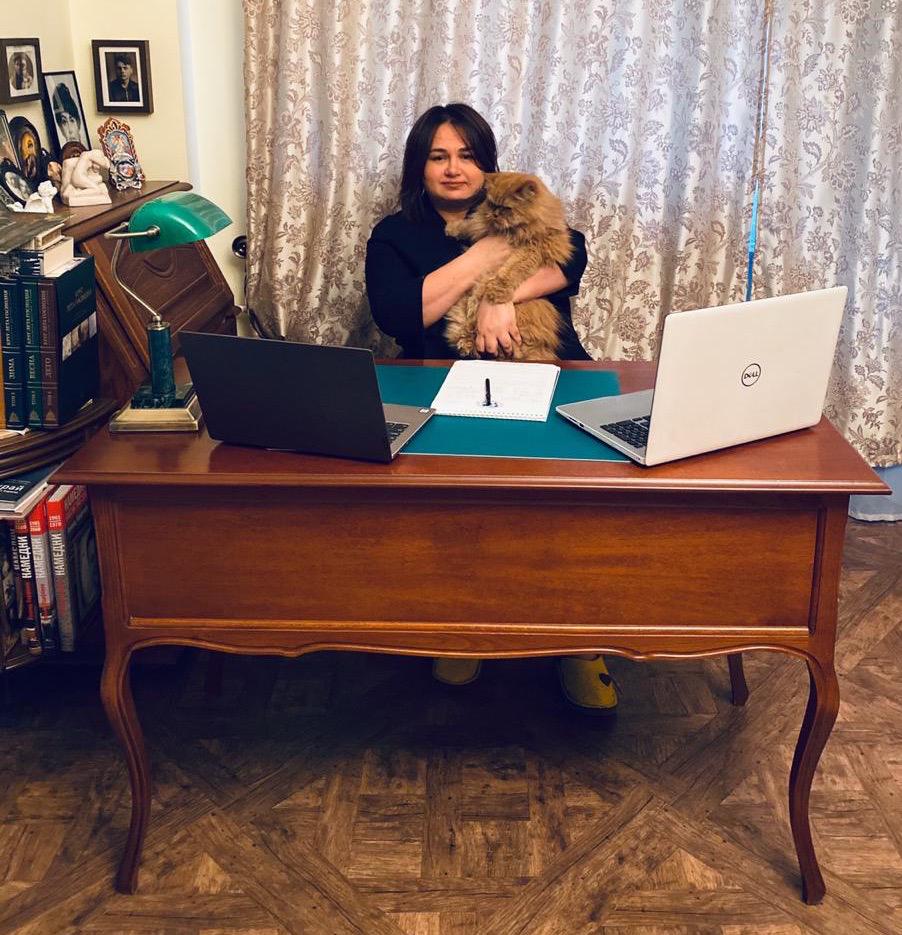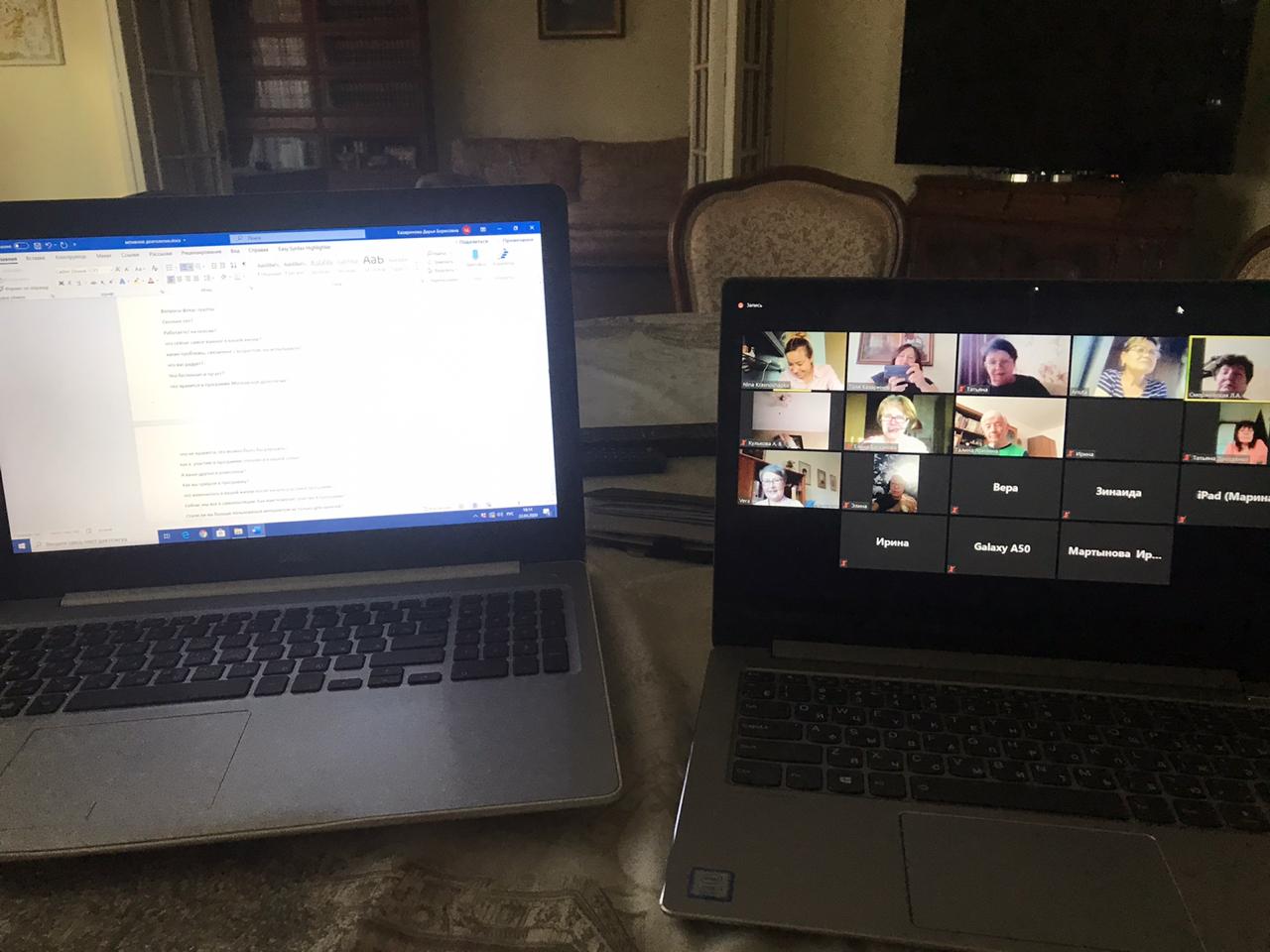“Education is the most important channel of human socialization. You cannot enjoy that at a distance. After all, the greatest luxury is communicating with interesting people”, Daria Kazarinova
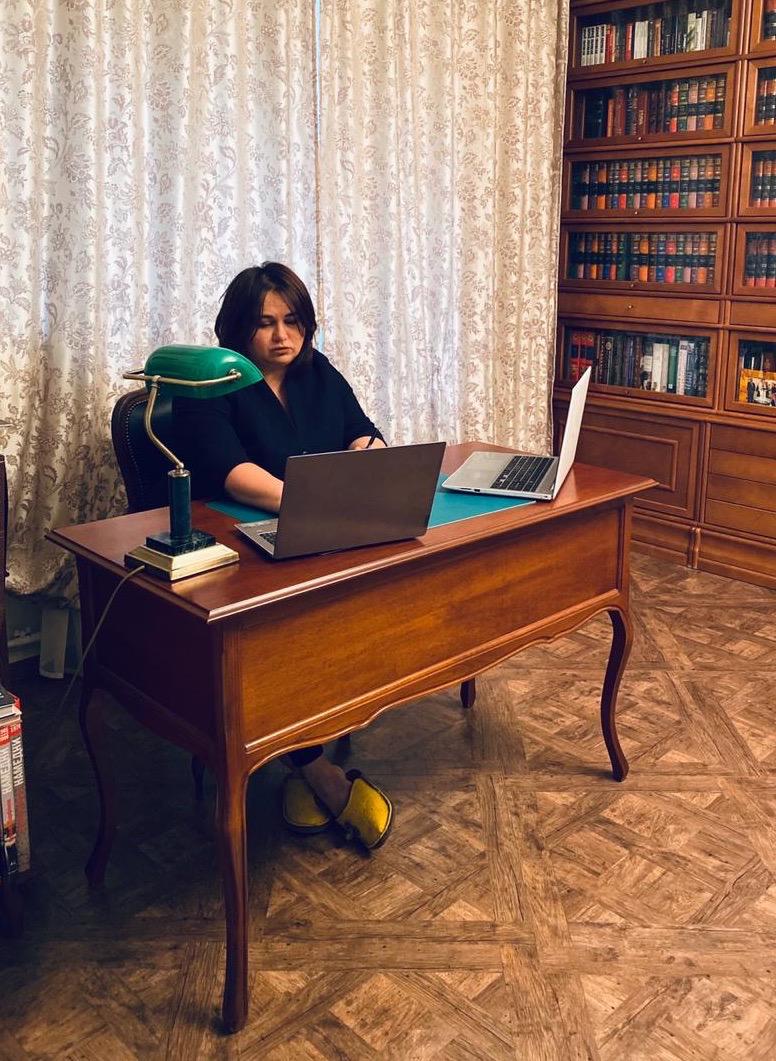 Daria Borisovna, you conduct classes in a "two teachers in the classroom" mode. What is its essence and what are its main advantages?
Daria Borisovna, you conduct classes in a "two teachers in the classroom" mode. What is its essence and what are its main advantages?
The point is that the lecture is not held in the “talking head” format, but as a conversation of two experts - two teachers or a scientific advisor and a graduate student. We work together with Vladislav Butenko, an assistant at the department. We are conducting a discussion, commenting on the main material. It’s more fun to follow the dialogue, and students are more freely involved in the discussion. This is how we worked in the classroom, and in online classes the method worked particularly well. Everyone noticed that in the remote format it is necessary to concentrate more strongly, and material should be presented more dynamically. Therefore, discussion and switching attention to lecturers are very helpful. This method is perfect for working with masters and for organizing educational practice of postgraduate students.
It’s necessary not only to moderate the conversation, but to conduct it in order to hear questions and answers. I participated in many webinars, so I know that we need strict regulations and the most detailed plan of the lesson. During the lesson, students in the chat write comments and say that they want to say something. This is not easy - I know from experience that even the most advanced moderators with the most venerable speakers do not always succeed in building an online discussion as coolly as in reality. Therefore, I use two laptops: one for Zoom or MS Teams screen sharing mode, the other for my plan and questions for discussion.
What is the most difficult thing in organizing online seminars on "European Union and Russia: the political and sociocultural dimension"?
European studies in Russia are very developed and institutionalized. A long time ago, I started communicating on Facebook with colleagues in the Association for European Studies, specialists from MGIMO, St. Petersburg State University, and the Higher School of Economics with a proposal to share Russian and English-language online courses. I posted links to the best materials at RUDN telecommunication platform and the basic materials on the discipline are also downloaded there. In autumn we had accreditation of educational programs - and this made us stronger. We know how to work with electronic information and educational environment, students also have some experience. Therefore, when we had to start online teaching all we had to do was to learn MS Teams, which is quite intuitive. The most difficult thing was to get used to the format of online communication.
How do you prepare for classes and what helps you concentrate when working from home?
60-70% of my tasks were solved online long before self-isolation. The work of the Executive Secretary of the “Bulletin of the Peoples' Friendship University of Russia. Series: Political Science” and the scientific secretary of the Dissertation Board, all work with postgraduate students and graduates means editing, texting and telephone calls. I think that none of teachers and researchers now wonder what to do in self-isolation. And given the fact that the whole family is at home, I need even more self-isolation.
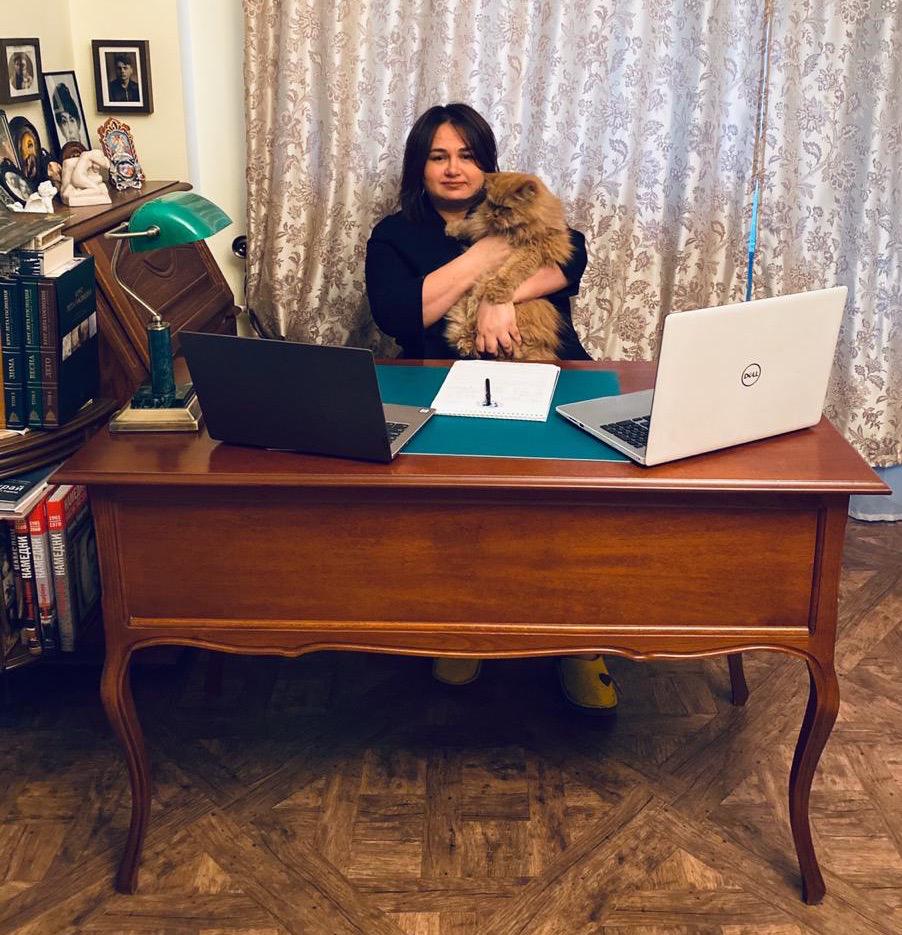 From the very beginning, I have stuck to the daily routine, I do not work in the bedroom or at the dining table. I am lucky - I have a study at home. Although usually there are presentations on the screen, I still make proper light and apply some makeup - it is important that the students have a good impression of the meeting. Family members help me a lot and I am very grateful to them. Children have their own online study from 08:30. And when I have classes, all try not to make noise. Even the cat has learned not to interfere. His name is Findus - in the tales of Sven Nurdkvist “Petson and Findus” that is a very restless cat, while ours has manners.
From the very beginning, I have stuck to the daily routine, I do not work in the bedroom or at the dining table. I am lucky - I have a study at home. Although usually there are presentations on the screen, I still make proper light and apply some makeup - it is important that the students have a good impression of the meeting. Family members help me a lot and I am very grateful to them. Children have their own online study from 08:30. And when I have classes, all try not to make noise. Even the cat has learned not to interfere. His name is Findus - in the tales of Sven Nurdkvist “Petson and Findus” that is a very restless cat, while ours has manners.
Change of activity also helps. Some usual activities have gone online. Now, twice a week, I have group workouts. Previously, they were in the gym, now - in Zoom with my student Nina Krasnoshapka from the Department of theory and history of culture. She conducted classes in the project "Moscow Longevity" and people were so happy that they followed her online, where I joined them.
How do you test students' knowledge? How was the first distance attestation?
It was quite traditional, students made presentations, wrote essays and took tests. Nothing has changed - students speak at MS Teams, testing takes place at RUDN telecommunication platform (TUIS), and essays are checked in the Anti-Plagiarism system.
From the first year I teach bachelors to write independent texts. I always read only those works that have passed an automatic check for originality.
The certification was based on the materials that were posted in my TUIS section last year. We checked the students' essays with Vladislav Butenko. It took me about 20 minutes to check each essay, although usually the quality of the answer is immediately visible.
What do you think of the fully distant higher school format?
Now there is a lot of debate on the "post-viral" world - about how society, economy, politics, culture will change. We even had an online roundtable discussion with students about this topic. Often there is an opinion that many areas of human life will go into virtual reality: trade, communication, tourism, entertainment and, of course, education. Some experts say that online will be “for the poor” and offline - “exclusively for the rich.” I would not want to live in such a world.
Of course, distance format is perfect for some higher education tasks. For example, the other day we had a preliminary discussion of master's theses. It was successful: the student is still making a presentation, and instantly there are a lot of useful comments and links in the chat.
But it is not good for group exercises, when you need a sense of belonging and mutual understanding, and a quick exchange of opinions.
A completely distant format is like having only television but no theater. Do not forget that education is the most important channel of human socialization, which is hard at a distance.
What do you especially miss at the university?
Meetings. It’s a joke of course. This is exactly what we should do online in the future. Everything that involves only exchange of information, and not emotions should be done in Teams.
I miss the general atmosphere of RUDN University, our department, which is a university in miniature: creative, young, international and fun. And the biggest luxury is the luxury of communicating with interesting people.
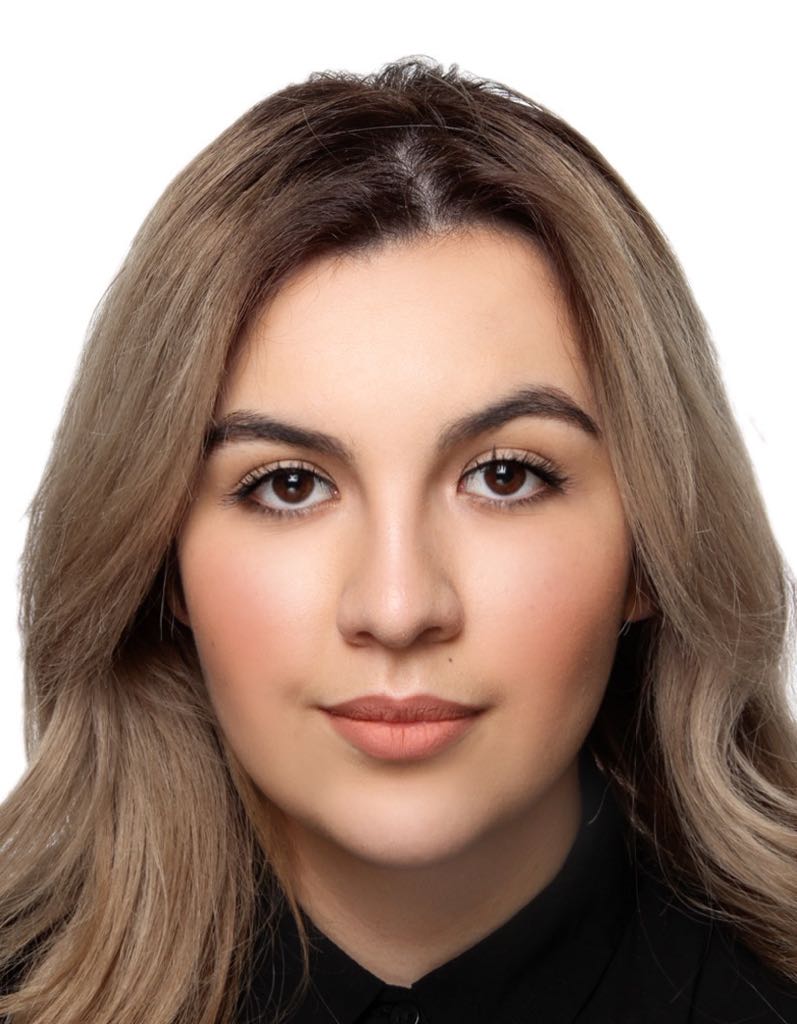 I like the “two teachers” method. Daria Borisovna gives many different points of view and her assessment, and the assistant clarifies and systematizes the material. In the classroom, we discuss global issues - not just the European Union. Recently we have touched upon the theme of the post-coronavirus world and discussed the measures of different countries to combat the virus. In Teams we discuss presentations, and after that we have an opportunity to review recorded material. The downside of distance learning is the same for everyone - we were not ready for such a sharp turn of events.
I like the “two teachers” method. Daria Borisovna gives many different points of view and her assessment, and the assistant clarifies and systematizes the material. In the classroom, we discuss global issues - not just the European Union. Recently we have touched upon the theme of the post-coronavirus world and discussed the measures of different countries to combat the virus. In Teams we discuss presentations, and after that we have an opportunity to review recorded material. The downside of distance learning is the same for everyone - we were not ready for such a sharp turn of events.
RUDN University staff and alumni received state and departmental awards at the State Kremlin Palace during a festive concert in honor of RUDN 65th anniversary.
An architectural-landscape project by a 5th-year student of RUDN has been shortlisted for the annual International Professional ADD AWARDS 2024 for architects, designers, and developers in the “Urban Environment” category.
RUDN University employees’ work and contribution to the development of the university cannot go unappreciated. The Ministry of Science and Higher Education of Russia recognizes talented university employees and present them with various departmental and state awards.
